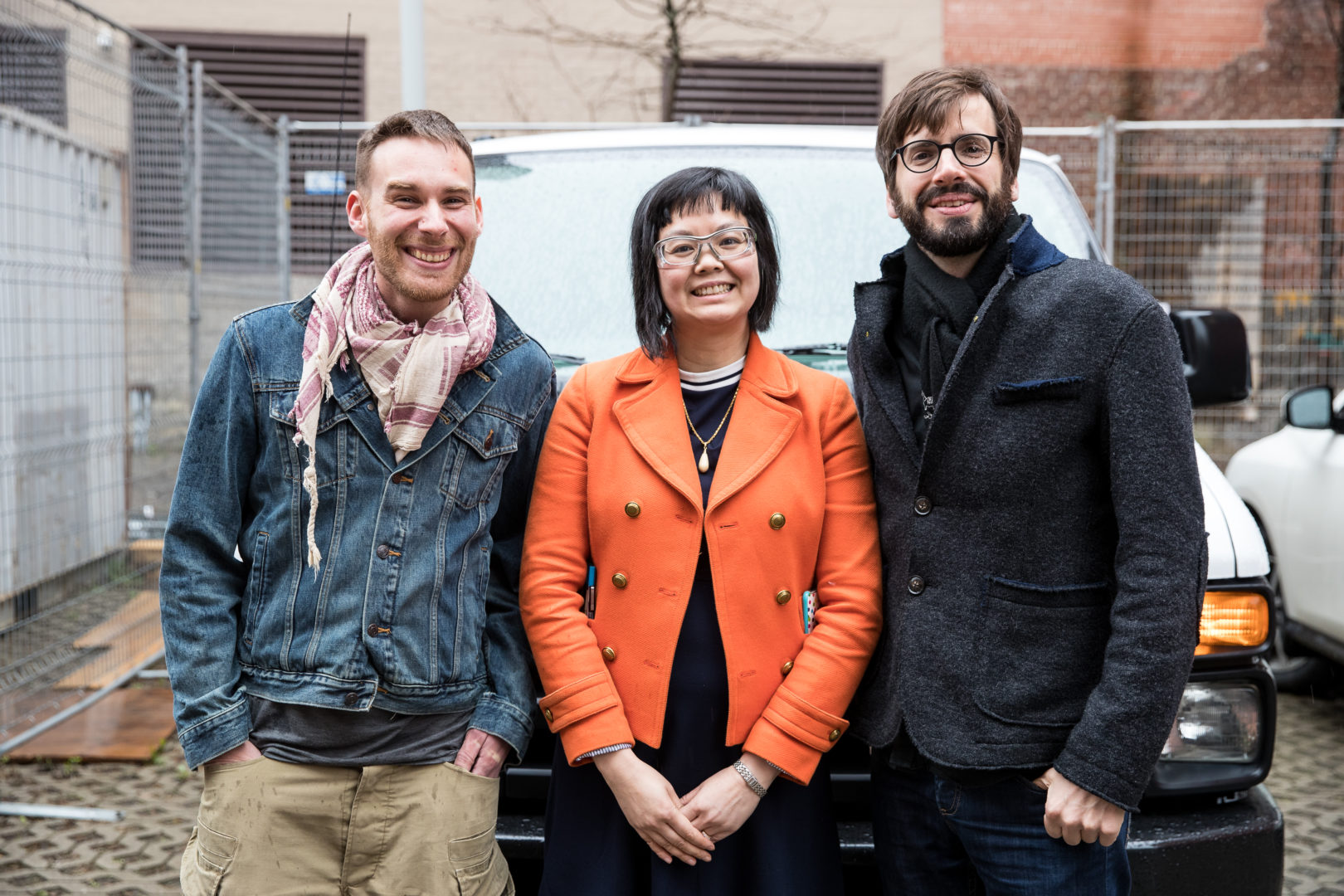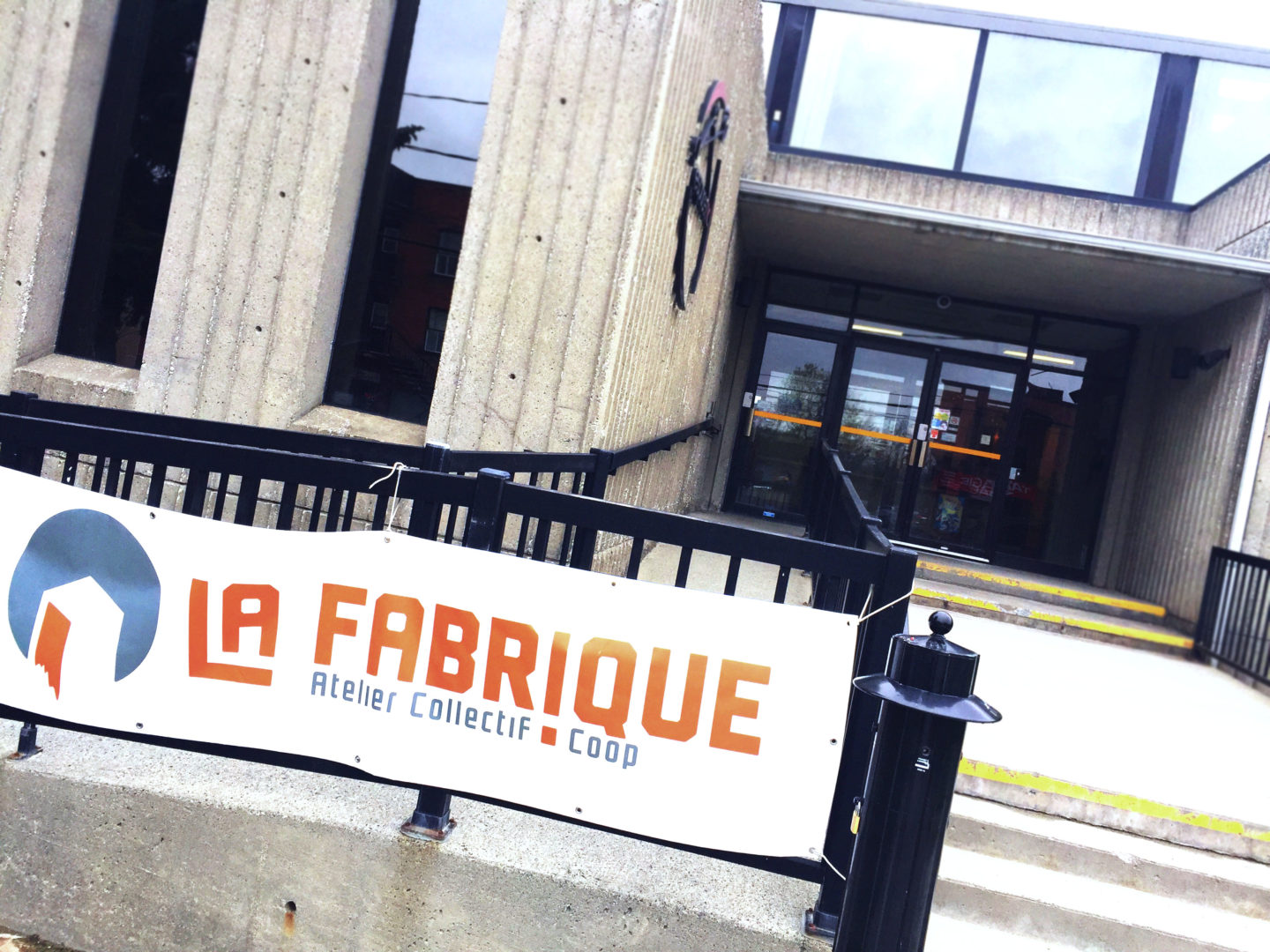PRESS RELEASE
Montreal, 1st May 2017 – PCs, the Internet, and smartphones have had huge impacts on societal networking, in economic opportunities, and in technological advances. 3D printing, laser cutting, and Computer Numerical Control (CNC) are amongst these advances. For the past 15 years, these digital manufacturing tools and their networking modalities have revolutionized industry worldwide and opened-up manufacturing possibilities that once seemed unbelievable.
These opportunities have not been widely recognized in Canada, being too new and not implemented enough to catch-on. Canada has yet to realise the enormous potential in innovation of these technologies and the skills needed to master them.
“It is to make people aware of the resources available as well as the new opportunities that can benefit their communities that Fab Labs Nation is being launched today; an adventure involving a cross-Canada, three-month tour by caravan to meet Canadian Fab Labs and other collaborative manufacturing projects,” announced Ms. Monique Chartrand, general manager of Communautique. This initiative, audacious in its scope, aims to help develop a Canadian inter-structure that is mindful of each region’s specificities. This is concurrent with a rapidly expanding network of over 1200 Fab Labs, spread around 100 cities across the globe, that collaborate via the Fab Foundation, itself a creation of MIT’s Center for Bits and Atoms (CBA). Following are excerpts from CBA’s mission statement for Fab Labs :“Fab labs are a global network of local labs, enabling invention by providing access to tools for digital fabrication. Fab labs share an evolving inventory of core capabilities to make (almost) anything, allowing people and projects to be shared. Operational, educational, technical, financial, and logistical assistance beyond what’s available within one lab. Fab labs are available as a community resource, offering open access for individuals as well as scheduled access for programs.”1
Fab Labs also help start-ups and established companies prototype their products and aid in commercial launches by tapping into shared knowledge, all in order to better innovate. They can guide inventors in business’s agreements and help kick off new business’s models, maybe even new types of business.
Project initiator
Communautique, the open innovation Hub, is dedicated to facilitate learning, training, collaboration, research, and experimentation in social as well as technological innovation. It has assisted the growth of Fab Labs in Quebec for the past 6 years. For over 18 years, the organisation has endeavored to democratise access to technology in view of economic, cultural, and social development. The initiative is backed by partners dedicated to both Communautique and the tour’s success. We thank our longtime backers and partners : the J.W. McConnell Family Foundation, the Fab Foundation, the Centre interdisciplinaire de recherche sur l’opérationnalisation du développement durable (CIRODD), Fab Labs Québec, AgoraLab, Procédurable, the First Peoples Innovation Centre, La Fabrique, Musée de l’Ingéniosité J. Armand Bombardier and Quartier de l’innovation, and our sponsors : Trotec, Proto3000, Voxel Factory, Artworks and SignMax.
Source :
Philippe Ricard
Communications officer
philippe.ricard@communautique.quebec
514 948-6644, ext. 221
Facebook: https://www.facebook.com/fablabsnation/
Twitter: https://twitter.com/fablabsnation
Information Sheet
Fab Labs and digital manufacturing
Some consider Fab Labs to be a “third industrial revolution.” This type of laboratory/workshop is part of a movement that empowers everyone to innovate, create, produce, distribute, consume, repair, and/or recycle objects for themselves, with others. It is a space that can be called upon as a partnering model between organizations and territories; an open space where high-reaching innovation, communities of students, workers, and various other end users, as well as R&D clients, can come together.
An international community of end users gravitates towards Fab Labs. They are set up as laboratory/workshops in thousands of cities and towns. They hold enormous potential and can be vital for the growth of communities. They have proven their usefulness in a variety of sectors: health, creativity, education, entrepreneurship, etc. Fab Labs form part of the Open Innovation movement and are faithful tools for a Smart City. Moreover, they can showcase knowledge of arts and crafts by using new technologies at the dawn of this new industrial age.
Fab Labs allow bold visions to be made real and help the farsighted grasp the future:
- By way of imagining and producing solid objects
- By sharing and developing skills and knowledge
Communities can become more creative and resilient if they can locally access cutting-edge technologies as well as the knowledge and skills needed to use them. Dreams that solve society’s complex problems can turn into real world projects. Fab Cities are no longer mere concepts. National and continental networks are being discussed and one even hears of a Fab Country.
This rapid development is backed by, or resonates with, several underlying trends, amongst which are the following:
- The concurrence of digital design with the production and life-cycle management of industrial products; the drop in price of computer software and digitally guided machine tools; and the networking of stakeholders made possible by the Internet and a standardization of sizes/formats.
- The extension of open source, beginning in the realm of software, to electronics, e.g., Arduino controllers, to digitally guided machine tools, e.g., 3D RepRap printers and their forks, and even to consumer goods, e.g., open source washing machines and vehicles.
- The rapid development of “third-party workshops/studios” (for purposes of mediation, for services, for work, for culture, for community bases…), that function as physical knots of networks, be they physical or digital, local or global.
- The search for new forms of learning/training, as well as accreditations that respect and value “doing” and “the cleverness of hands,” while relating to the possibilities that the digital world offers.






